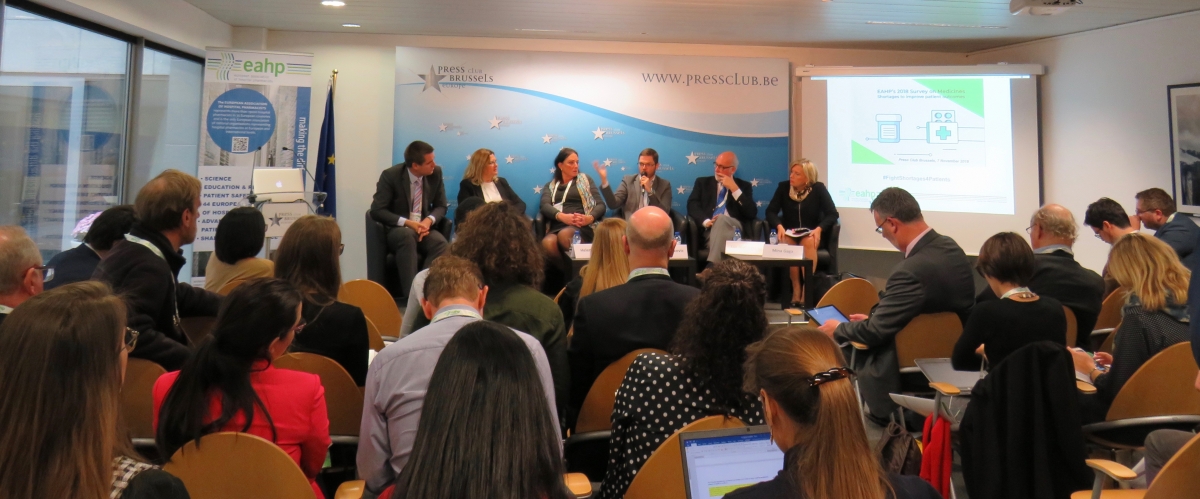2018 EAHP survey results – the medicines shortages problem continues to persist
2018 EAHP survey results – the medicines shortages problem continues to persist
7 November 2018

- 91.8% of respondents in 2018 reported that medicines shortages are a current problem compared to 86.2% in 2014.
- Improved communication between supply chain actors is needed to ensure that hospital pharmacists are adequately informed about the shortage situation in their country.
- The European Commission should start to collect information on the causes of medicines shortages and work on solutions that will help solve preventable shortages.
Today, the European Association of Hospital Pharmacists (EAHP) released the results of its 2018 Medicines Shortages Survey which underline that medicines shortages remain a major problem for patients in European hospitals. In a number of ways the issues have become more troublesome since the publication of EAHP's last survey results in 2014.
Overall, the 2018 Medicines Shortages survey gathered information on the current nature of the medicines shortages problems in Europe, including their prevalence, the most common types of shortages as well as their impact on patient care and hospital pharmacy services. In addition, hospital pharmacists were asked about existing national mechanisms for dealing with or monitoring shortages and how they typically manage the problems caused by shortages.
In particular the percentage of hospital pharmacists reporting shortages to be an issue in terms of delivering the best care to patients has seen a significant increase with 91.8% respondents, compared to 86.2% in 2014 stressing that medicines shortages are a problem faced in their hospital pharmacy. This negative trend was further confirmed by over half of the 1666 surveyed hospital pharmacists who highlighted that they are seeing patient care delays as a consequence of medicines shortages. Antimicrobial agents, preventive and oncology medicines were reported as the three most common medications in shortage. Many also remarked that reliable communication listing the reasons, estimated durations, and other advice to pharmacists, prescribers and patients is still missing. The EAHP consequently calls on national governments and the European Commission to improve the communication on medicines shortages. Only a comprehensive communication strategy on shortages targeting all European states will ensure that all supply chain actors, including hospital pharmacists, receive adequate information on the shortage of medicines in their countries.
Prior to the launch at the Brussels Press Club, EAHP President Petr Horák stated: "Similar to the findings of the 2014 survey, also the results of this report underline again that medicines shortages are a pan-European problem that cannot be solved through national measures alone. Consequently, the European Commission should gather information on the factors causing medicines shortages and start to provide solutions that will help to solve preventable shortages."
EAHP thanks Amgen for supporting the realisation of this report and Keele University for the analysis of the survey results.
ENDS
For further information contact info[at]eahp[dot]eu | 00 322 669 2513
The European Association of Hospital Pharmacists (EAHP) is a not-for-profit organisation that defends the interests of more than 21.000 European hospital pharmacists from its 35-member associations. EAHP works to develop knowledge on hospital pharmacy to ease the improvement of care and outcomes for patients in the hospital setting. We achieve this through science, practice, research, education, as well as sharing best-practice and responsibility with other healthcare professionals.
EAHP's most recent report on the medicines shortage situation around Europe is available HERE.




